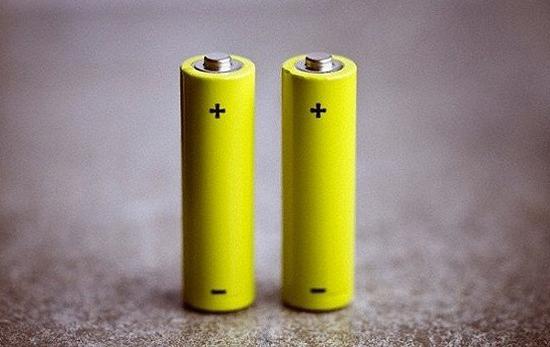Graphite Battery-Definition, Performance And Cost Effective
Aug 15, 2020 Pageview:907
With the significant technological advancements and emergence, not just technological devices like laptops, mobile phones, televisions, but also cars have been evolved to SMART in the last few decades. And as all these devices are becoming Smart devices, therefore we are becoming much more dependent on sources of power like batteries.
Batteries give life and power to almost all the electronic devices, may it be a smartphone, laptops, cars, airplanes and many more but not a single kind of battery is suitable for all the devices. Therefore, there are many different types and sizes of batteries that are suitable and compatible with the specific devices. And due to this, is it essential to check which battery is suitable for your device. Almost all the batteries are excellent in performing their own functions. In terms of energy supply, graphite batteries, or lithium-ion batteries with graphite as an enhancement in it are the leading source of energy supply.
So, if you are not aware of what these graphite batteries are, then you are at the right place to know everything about them. Here in this article today, you will get to know the meaning of graphite batteries along with its performance and many more things.
What Is A Graphite Battery
When you will be searching and looking up for what graphite battery is, then you might also come across the term Graphene battery as well. For you, both the terms – Graphite Battery and Graphene Battery might seem to be the same, but they both are totally different. So, firstly let's look in detail about what exactly Graphite Battery is
Lithium-ion batteries with excellent rechargeability, outstanding energy density, and suitable power density play a vital role in everyone's day to day life. And graphite is the critical component that is used as an enhancement in these lithium-ion batteries. Graphite is the significant component that has paved the way for lithium-ion batteries' success for the last 30 years. It serves as the lithium-ion host structure for the negative electrode.
The graphite materials remain the dominant active anode material used in lithium-ion batteries. The performance of graphite as a reliable and safe material provides sufficient energy density for many portable devices.
The anode in the lithium-ion batteries is made up of graphite is, therefore, they are also known as graphite batteries. A graphite anode is one of those elements that make it a lithium-ion battery. These batteries are much more powerful and lighter in weight than other cells, and they have no memory effect and a very low discharge rate when not in use.
Why Is Graphite Used In Battery
As in the previous question, you get to know that graphite is a significant element of lithium-ion battery so now, the question that may arise in your mind is that why graphite is used in these batteries
Here is an answer to this.
Graphite is an efficient and reliable material to use. It is not only used as an anode, but it is also a dominant one. Everyone needs a substance that conducts, but many metals are not suitable for this purpose as they might be oxidized or very expensive. But graphite with low reactivity, high energy density, and good electrical conductivity makes it a significant element to be used in batteries.
Graphite materials are either produced synthetically or are mined from the ground, and after this, they are heavily processed before being baked on the copper foil to serve as anodes. The reason why graphite is used in batteries is that the graphite anodes meet the voltage requirement and are relatively affordable, porous, durable, and light.
Graphite was used for conductivity in the traditional zinc batteries, but if we talk about the latest technology, then the use of graphite in batteries serves a more active purpose. The layered crystal structure and the high surface area are graphite features that make it a suitable element to be used as an anode material into which the lithium ions are interjected.
Are Graphene Batteries Worth It
Until now, you have got to know about the Graphite batteries and its performance, but now as the question is about the Graphene battery, we will first clear out the difference between them to let you have a clear picture of the difference between the two.
Like Graphite batteries, Graphene batteries are also lighter and slimmer, but they are somewhat much lighter than graphite batteries. Unlike Graphite batteries, Graphene batteries allow for much higher capacities. The comparison between both the batteries brings out the fact that graphite batteries can store up to 180Wh of energy per kilogram. On the other hand, Graphene batteries can store up to 1000Wh per kilogram, which is much more than the Graphite batteries. The Graphene batteries are much more reliable, stable, durable, and flexible and are also more resilient to the issues that may cause batteries to explode.
As now the difference between both these batteries is clear, now let's discuss – Are these Graphene batteries worth it
The answer to this question is genuinely and assuredly "Yes" because the Graphene batteries are replacement to traditional graphite lithium-ion batteries. The reason being that the Graphene batteries are an emerging technology that allows for increased density of electrodes, quick cycle times as well as possessing the ability to hold the charge much longer which in turn improves the performance and lifespan of the battery.
Last Few Words:
Hoping that this article has helped you all you need to know about graphite batteries or why graphite is used in batteries especially lithium-ion batteries.
- Prev Article: Corrosion On Car Battery- Sign, Causes, And Fixing
- Next Article: Electric Car Batteries-Introduction, Cycle Life and Cost
Leave Message
Hottest Categories
-
Hottest Industry News
-
Latest Industry News











